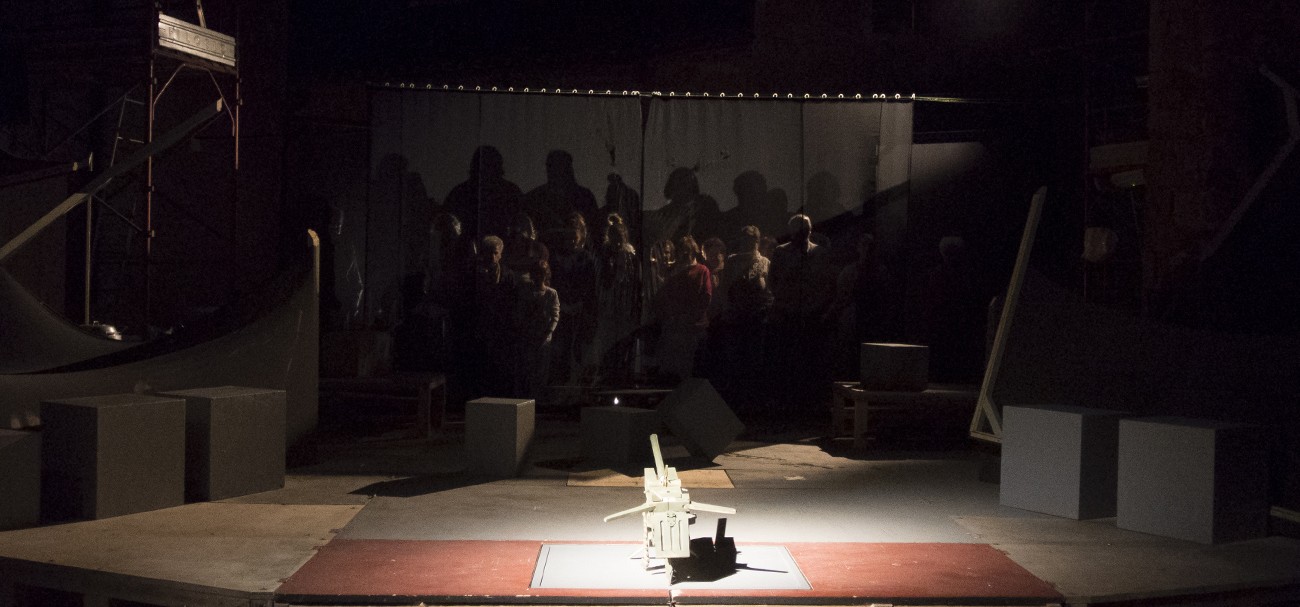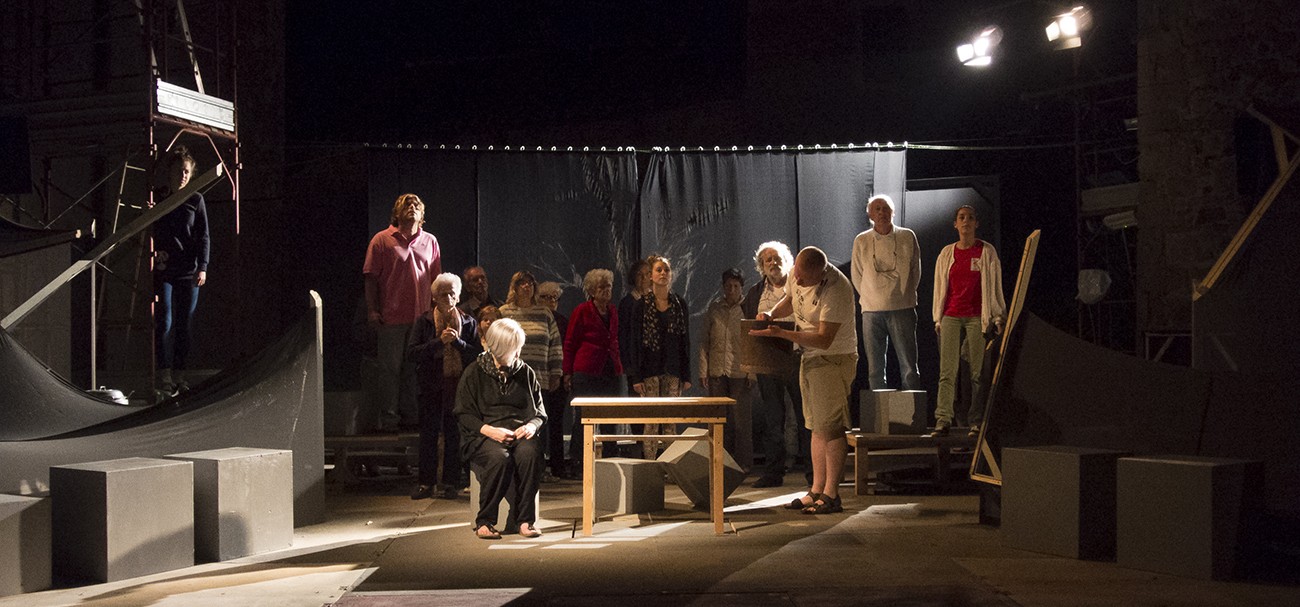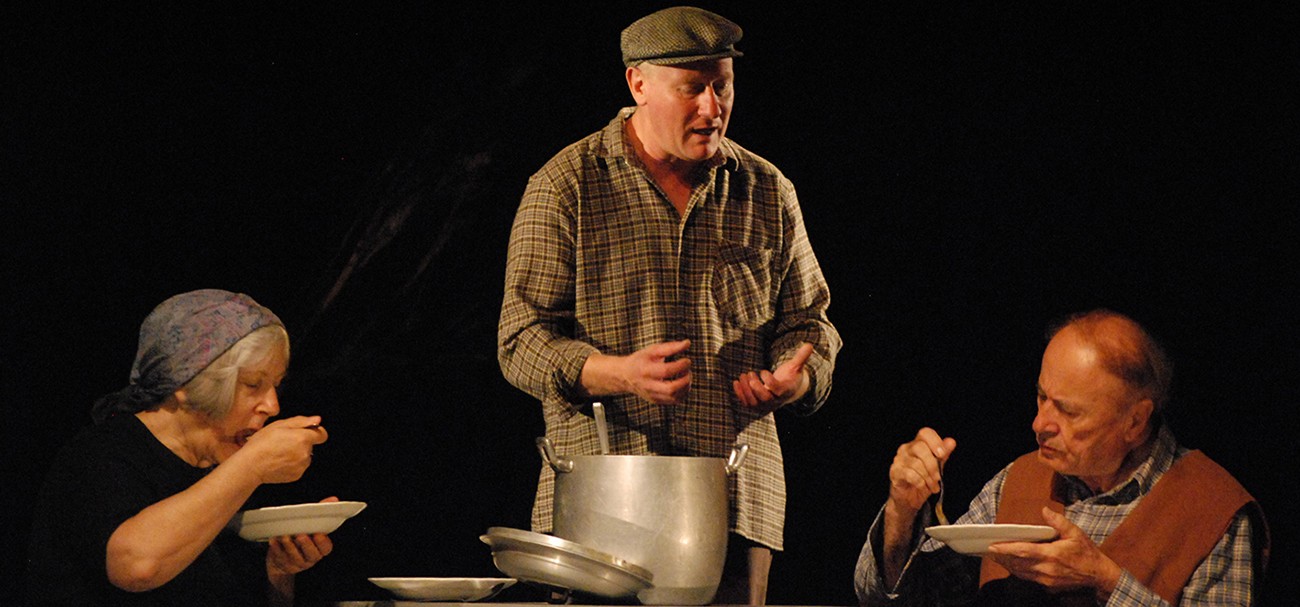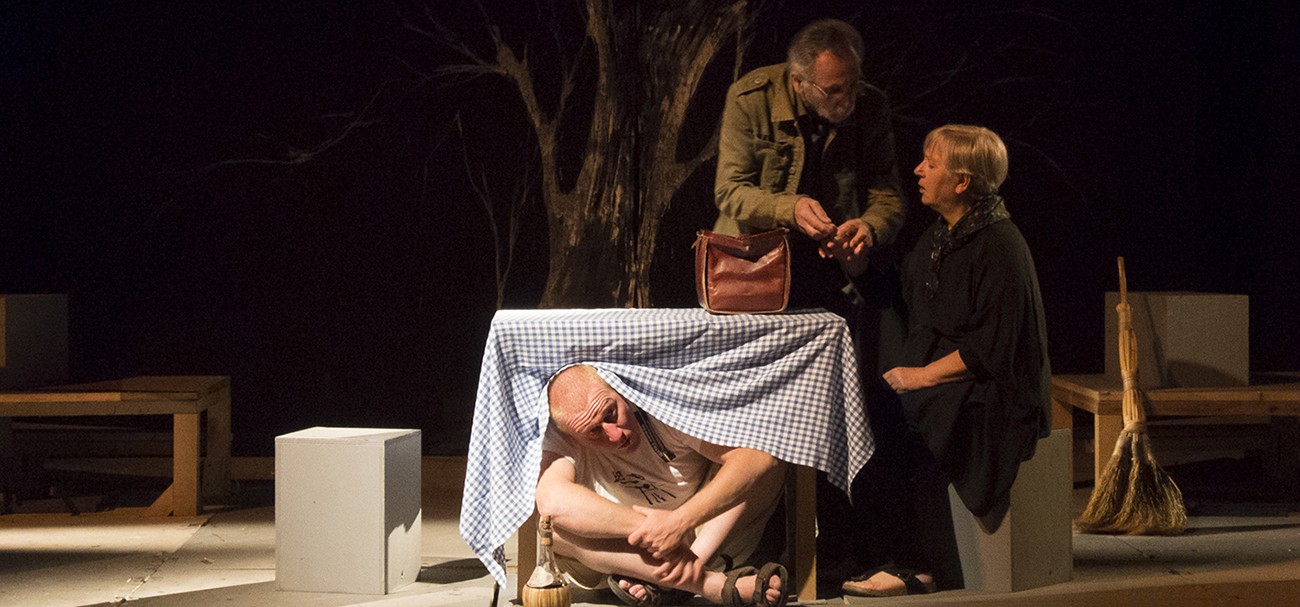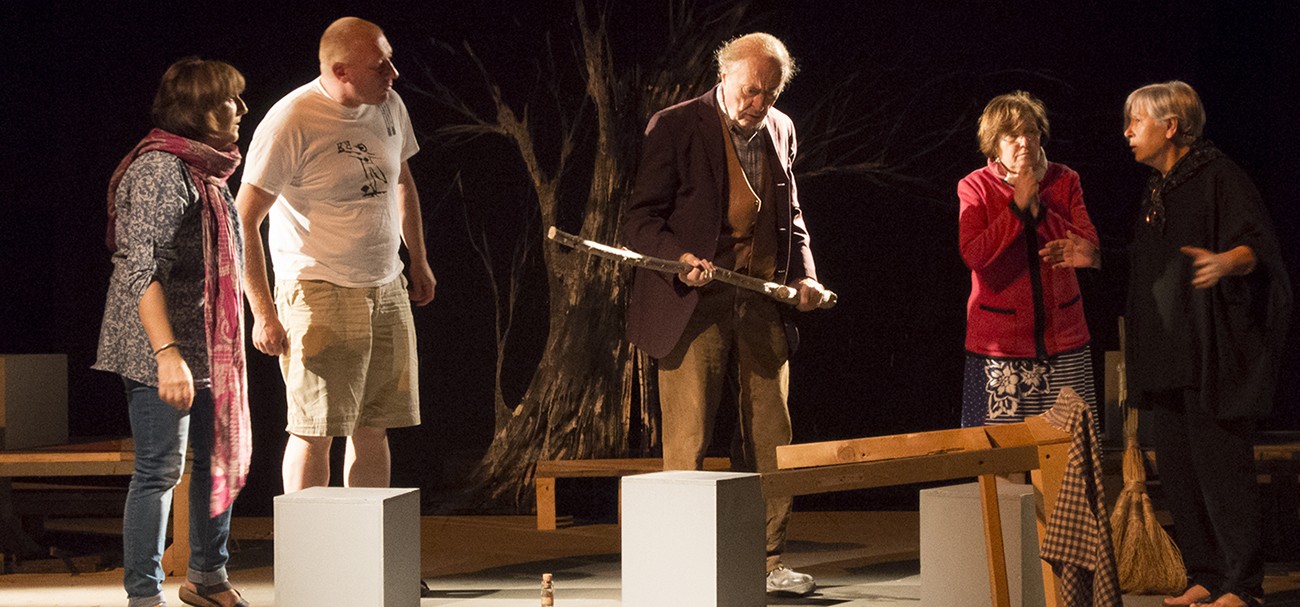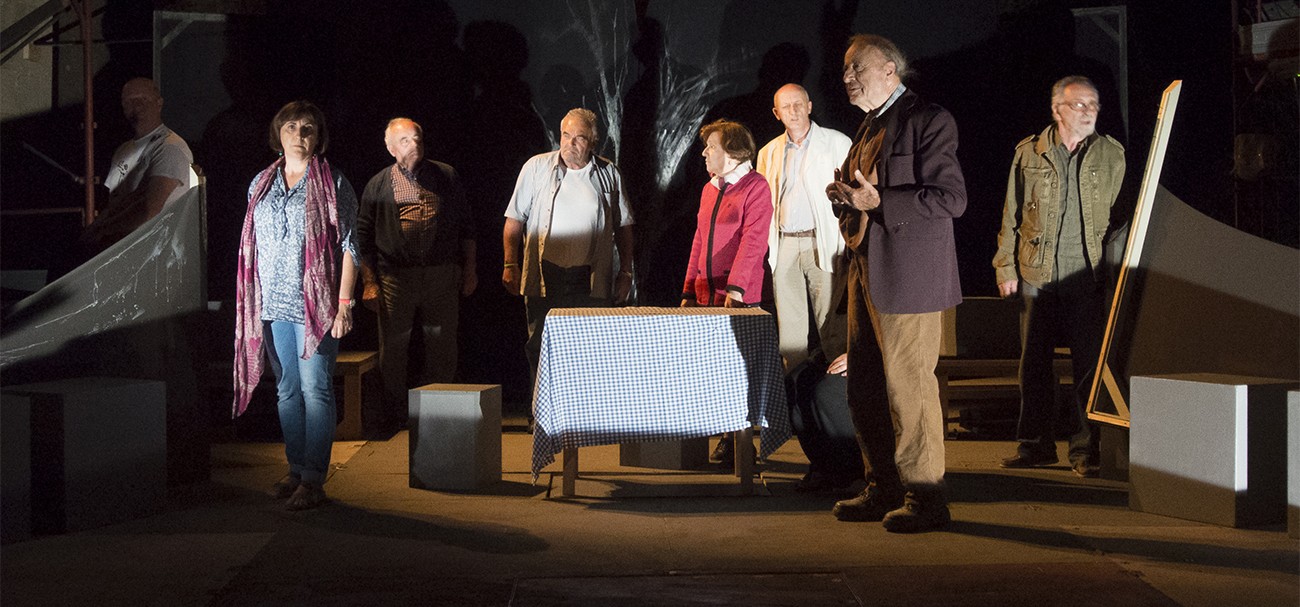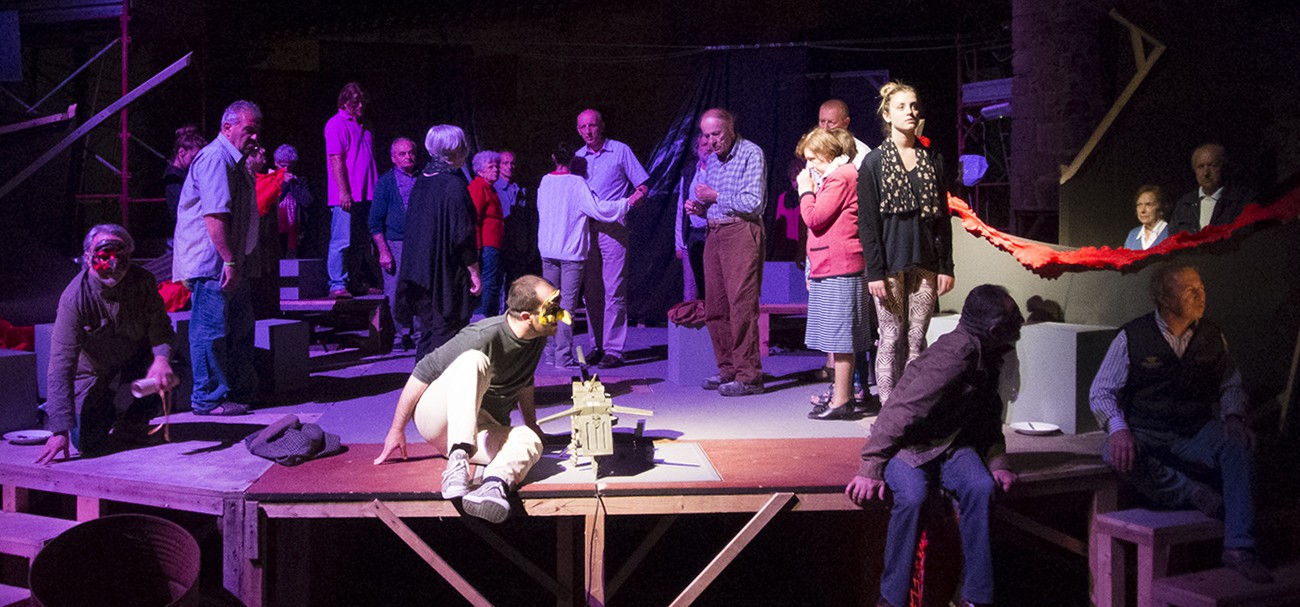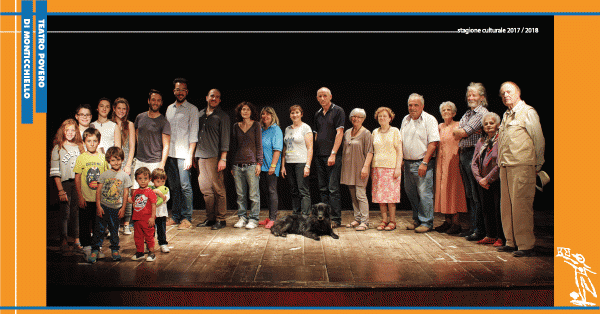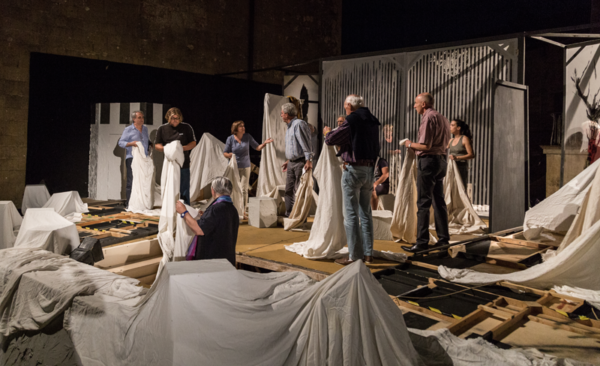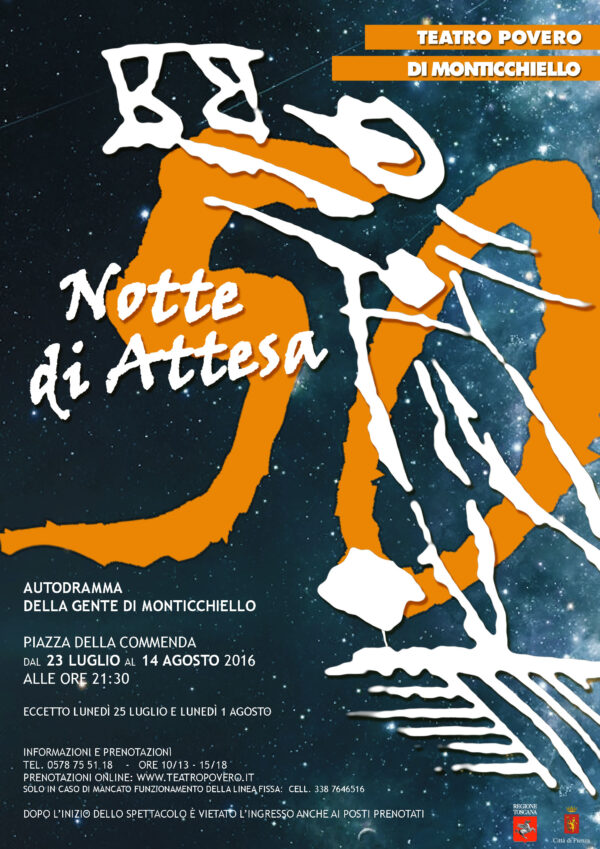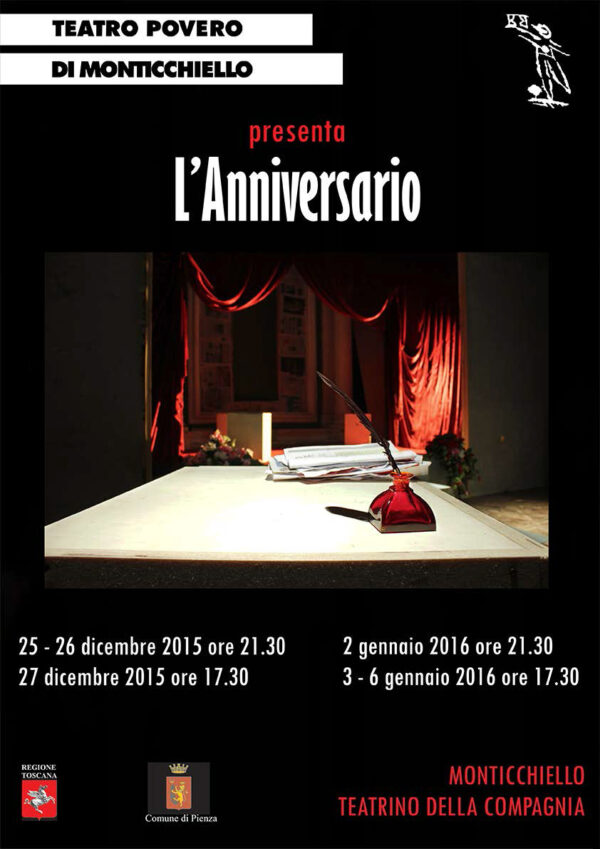The 2014 autodramma was structured around a play within a play. A comfortably farcical peasant drama called Grano velenifero (‘Poisoned Grain’), composed some time ago by the late Osvaldo Bonari, was presented as a distraction from immediate worries. In the old days, it was suggested, Tuscan peasants were able to divert their minds from their problems by telling stories and having a good laugh.
But this attempt at entertainment was regularly disrupted on stage by serious discussions. In an Italy plagued by crisis, and particularly by corrupt politicans and financiers, the rat-poison (veleno) of Osvaldo’s play invited a metaphorical significance: what poison could get rid of the human ‘rats’? Grano velenifero was therefore framed and interrupted by a series of episodes which referred to a modern context, to present-day ‘poisonous times’. In particular there was a satirical presentation of charlatans who claimed to solve everyone’s problems by semi-magical formulae: lottery numbers, tarot cards, or the ‘symbols of the universe’.
This autodramma also contained a more self-reflective train of thought. Monticchiellesi were aware that they were mounting their 48th annual autodramma—only two more years, and they would reach the half-century. Was that something to celebrate, or did it mean that the company’s story was nearing its end? The point was explicitly made that in Grano velenifero the younger members of the peasant family were being played by actors who themselves were not at all young: the company was getting old collectively, and failing to attract new blood. Osvaldo’s farce ended in a slightly ironic marriage celebration; the autodramma ended in an uneasy contemplation of the 50th anniversary feast which the Teatro Povero might mount in two years’ time. A group of ‘monsters’, familiar from other recent plays, briefly attempted to ruin the party.

